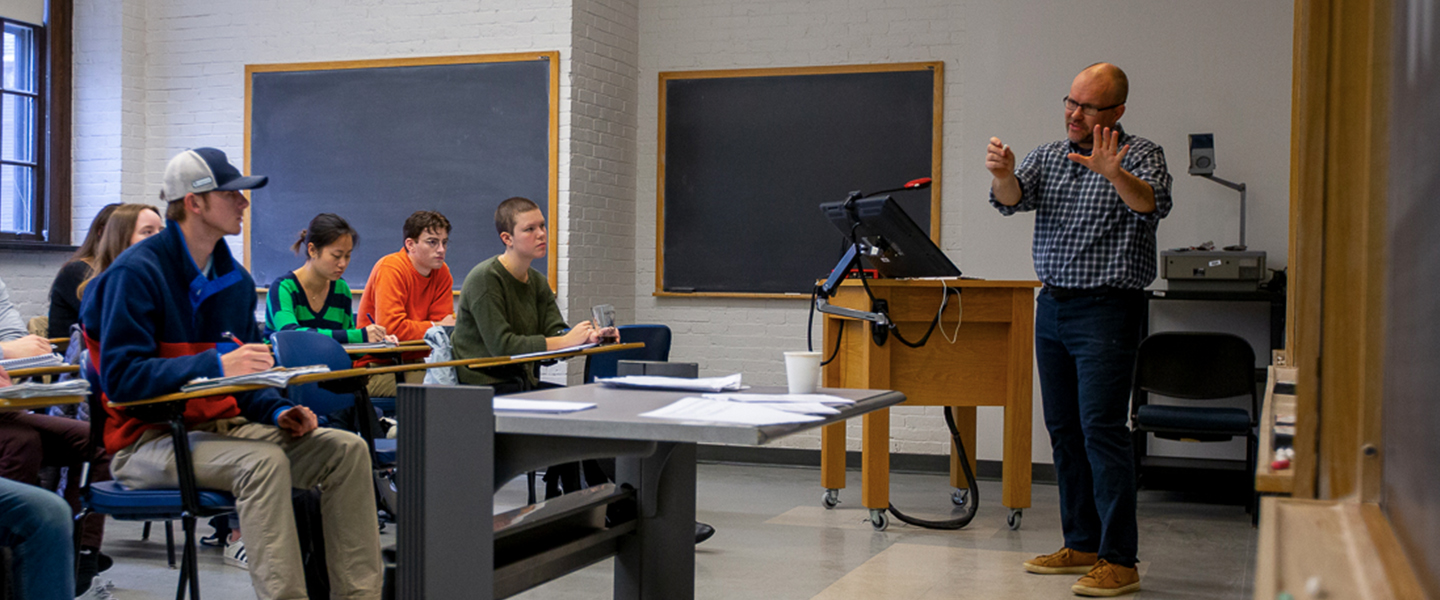Bowdoin Economist: How Coca-Cola Can Be Good for the Planet
By Rebecca Goldfine
Nelson's co-authored paper, "Voluntary sustainability standards could significantly reduce detrimental impacts of global agricultural," was published this January in the journal Proceedings of the National Academy of Sciences. It is the first-ever global assessment of the environmental impacts of voluntary sustainability standards, according to its authors.
The paper lays out an argument that if buyers of commodities—e.g., of sugarcane, wheat, or soybeans—commit to buying environmentally certified crops, they could dramatically reduce greenhouse gas emissions and water use, and increase yield.
Indeed, in a world in which every sugarcane farmer around the world adopted sustainable growing standards, total land area for production would decrease twenty-four percent. Water use would decrease sixty-five percent, fertilizer use would fall thirty-four percent, and greenhouse gas emissions would be cut by fifty-one percent from current levels.
Focusing on farming is an important piece of protecting the earth, since rising agricultural output to meet growing global demand for food and fuel is a major cause of environmental degradation and biodiversity loss.
Nelson said that he and his co-authors, who include a conservation biologist and a representative from Coca-Cola, launched the project to model the effects of widespread adoption of sustainable agricultural practices, particularly in countries with poor environmental oversight. The Coca-Cola Company and the World Wildlife Fund contributed funding to the project.
"In countries where institutions are weak, and government is easily bribed, or they have laws in the books that are never enforced, how do you improve agricultural sustainability?" Nelson asked. "You have to give the farmers in the industry some kind of incentive."
This is where wealthy international corporations that require huge amounts of commodities for their products, such as General Mills and Pillsbury, can have a sizeable effect, the paper argues.
The researchers zeroed in on one crop, sugarcane, and its certification through Bonsucro. Bonsucro is an international NGO that promotes sustainable sugarcane production, processing, and trade through voluntary certification. It monitors such things as farmers' water and fertilizer use, and whether any rainforest was cut down to make way for crops.
Because adoption by every single sugarcane grower is unlikely, the researchers also modeled other scenarios. They found that even if just ten percent of current sugarcane fields were Bonsucro compliant, the results would achieve more than half the benefits of the universal-adoption scenario.
In addition, Bonsucro growing practices increase sugarcane yield, thus benefiting the farmer. But a real-life obstacle for farmers could be the initial cost to make changes in their farm to meet new standards. It's unlikely Coca-Cola or other companies would pay more for sustainable crops, raising the question of where farmers can find financing, Nelson explained.
The team of researchers on the paper is interested in disseminating their findings beyond academic circles. "This paper is not your typical paper only valuable to academics," Nelson said. "This is trying to shape a conversation in the real world, and is trying to reach people that do commodity buying."